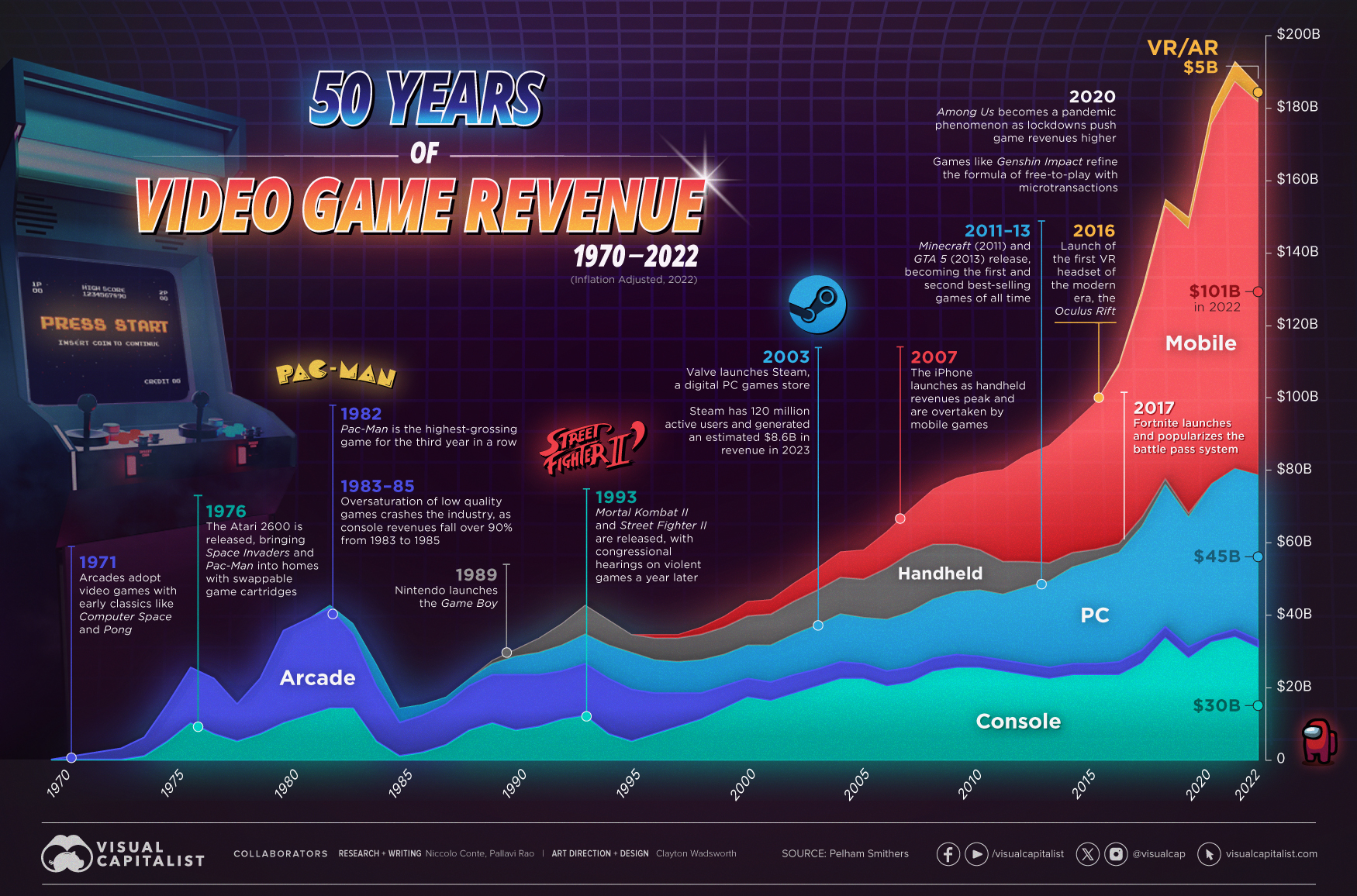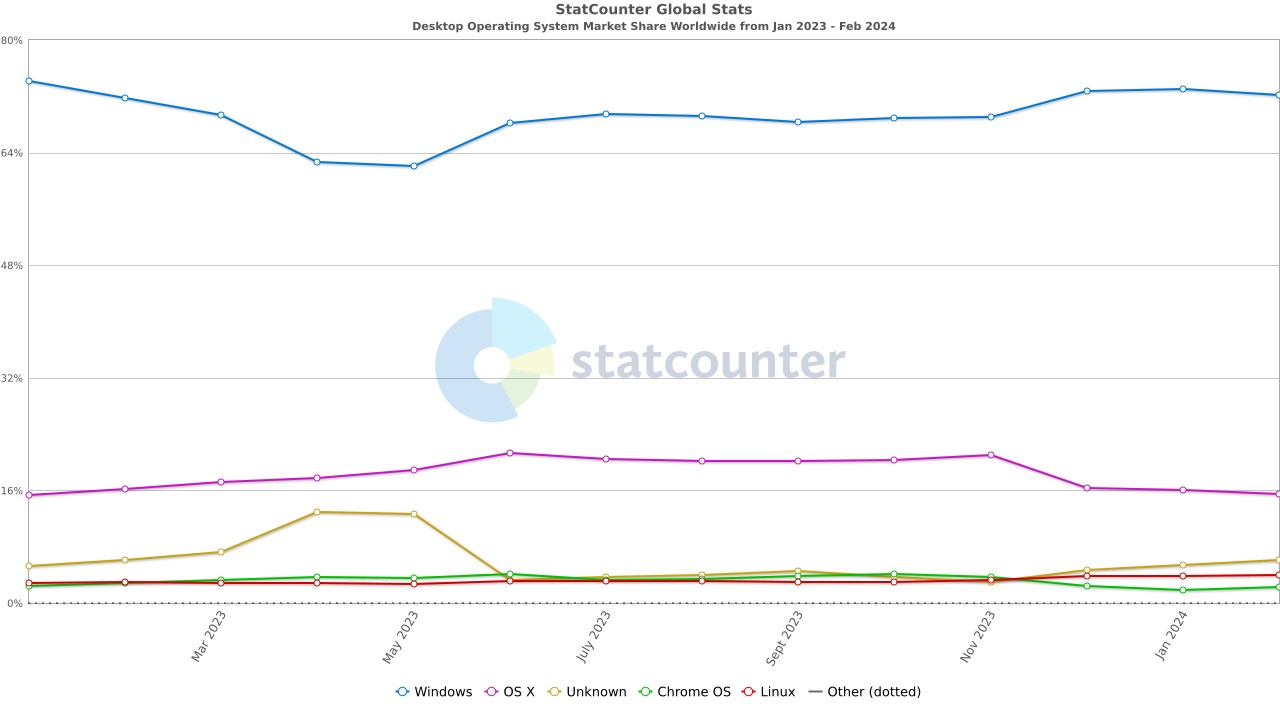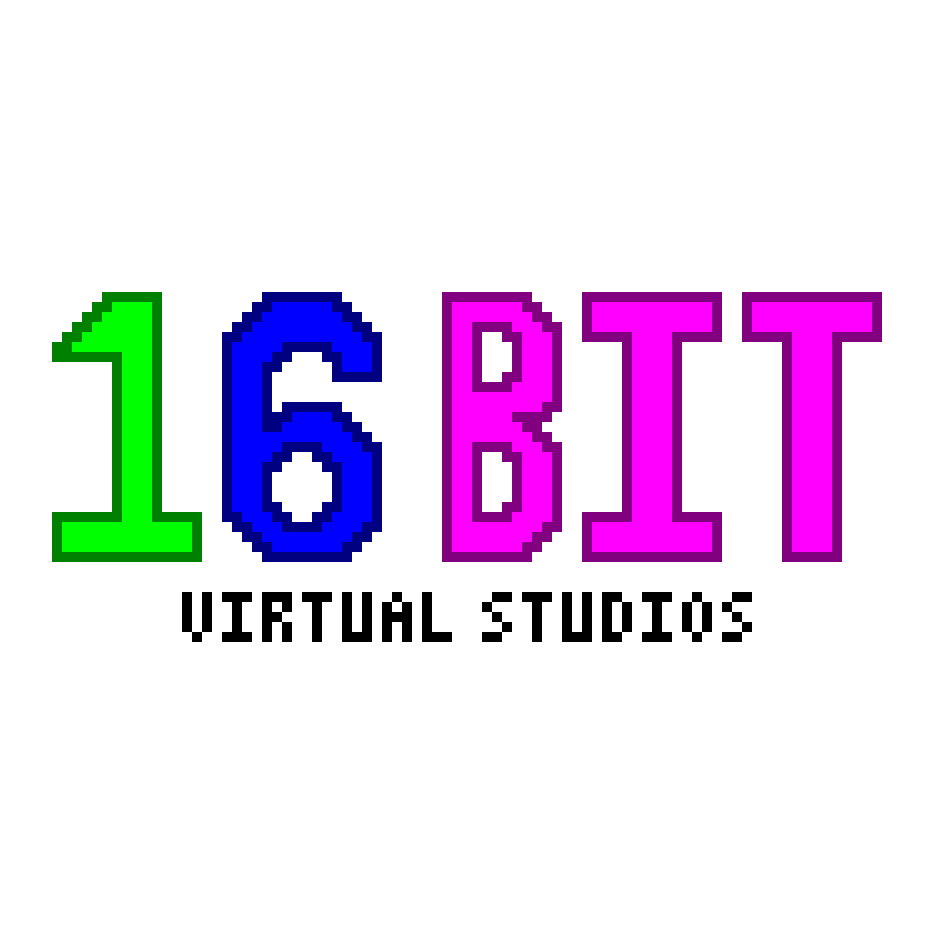- cross-posted to:
- linux@programming.dev
- cross-posted to:
- linux@programming.dev
I know this might be a couple months old, but I didn’t know we already passed 4%.
deleted by creator
If she doesn’t like it, find a new wife!
Priorities.
deleted by creator
I am so happy for you two!
What’s your review of LMDE over Debian? I recently took the Linux desktop jump recently and started with Linux Mint.
I really didn’t like the Mint desktop as it seemed very dated, so I’ve switched to Debian/KDE. It was only much later that I realized how easy it would have been to just customize my window manager instead of getting a different distro. Having said that, I’m really digging Debian in spite of Nvidia issues being a headache, and Debian’s glacial update pace making me look longingly at Arch.
I also didn’t like the way Mint looked/felt, even though I’m aware of its popularity and good reputation.
I’m on Pop!_OS which is mostly a GNOME desktop, but they do add [remove] features and it’s very smooth and clean. I guess this is one of the miracles of “linux” where we can all be using “linux” but with 1500 different varieties.
Yeah, I’ve heard really good things about Pop!_OS, especially for Windows migrants.
Funny enough, if you “need it to look like windows 7” Mint looks pretty close.
but yes, prior to October my house was 5 windows PCs. A couple weeks ago it was officially 5 Pop machines. No prior Linux experience, except for copy-paste setup of a pihole.
Or “here’s what Win 10 would look like if Microsoft hadn’t had the tablet-based stroke that was Win 8.” Is how I’d describe Cinnamon.
The default themes are a little bit dated; I use a darker kind of black transparent theme I got from gnome-look.org with a blue/cyan kind of scheme and it looks pretty up to date.
I love pop os.
deleted by creator
Yeah, the rock-solid stability of Debian stable is definitely a huge plus. I thought I would be okay with less frequent updates, but I changed my mind when I realized cool updates like KDE 6 won’t make it to stable probably until next year T__T. Even Nvidia 555 drivers probably won’t even hit backports for a while. Clearly the responsible thing to do here is to add an Arch install alongside my Debian/W11 dual-boot 😛
Not using a DE sounds intriguing, I might give that a try once I find my feet on desktop Linux. I’ve been around *nix systems most of my career, but I haven’t used a Linux desktop as a daily driver in like 15 years. It’s funny how much has changed, and how much hasn’t.
🤞 Make us proud, bud!
How much of this is decline at the expense of Windows 11, due to Steam lowering barriers to entry, fatigue with Windows’ hard selling, and/or extending the useful like of hardware that W11 abandoned.
Copilot / Recall was the last straw for me. My only relationship with Microsoft for the last 10 years has been, “how much more of Microsoft’s sh*t am I willing to put up with?”
I 100% put money on the fact that linuxes surge in popularity and usability is 100% because Valve, a multi-billion dollar company, stepped in and started dragging it forward in ways that the fractuous nature of the community never could.
Windows 11 being a spytastic invasive dogpile was just extra fuel on the fire.
Little bit of everything I think. I personally have been getting tired of Microsoft pulling their shit, but without Valve making compatibility so simple for their launcher it would make it a much harder sell.
Nearly zero. Gamers make up less than a rounding error of desktop installs.
Wut? It’s an industry bigger than football and TV and film combined! Somebody’s getting all those games and they have to be played on something too.

I know it technically counts and all, but it bothers me that “mobile” is included in “video games”. Mobile “games” are clickbaits and doomscrolls and it seems weird to compare them in the same graph as Nintendo/PC etc.
HOWEVER - in terms of REVENUE there is no denying how much money they make on mobile games! Probably due in part to the clickbait/doomscroll nature of them.
I know it technically counts and all, but it bothers me that “mobile” is included in “video games”. Mobile “games” are clickbaits and doomscrolls and it seems weird to compare them in the same graph as Nintendo/PC etc.
I didn’t post this graphic for the mobile and console games. I posted it because of the claim that PC games are “an industry bigger than football and TV and film combined!” USD 45Bn is big but not bigger than football and TV and film combined. The combined PC games revenue is about half of Disney’s yearly revenue.
Gamers do, the vast majority of which are mobile gamers. Followed by console gamers and then PC gaming which makes up less 15% of industry revenue.
Is less than
Percentages are the easiest statistical figure to bullshit. Just like it happens with “Linux desktop is only 4%”. We are then talking about over a hundred million PCs. PC gaming is 15% means that PC gamers are several hundred millions of devices. Sure, it is less than mobile gaming. But less doesn’t mean irrelevant, and much less a rounding error. You don’t call a fifth of the market that expends almost a quarter of the revenue a rounding error.
Steam surveys would like to have a word
With you, maybe.
They consistently show that several percent of gamers are using Steam on Linux
Yup. Gaming was one of the few things that kept me from switching to Linux. Then, I found out about Proton on Steam.
Attaboy gamers. Figure it out! You can do it!
First off, I DO NOT count ChromeOS, but whatever.
Secondly, when is 18% of anything “dominant”??? The fuck? Arstechnica back up off the pipe.
They probably mean of Linux flavored ps coverage.
(I’m aware Mac is very different than Linux, but it is more closely grouped with Linux than Windows)
It’s more BSD than anything.
Played csgo last night and this guy brought up he was playing on Linux Mint. Lfg, I was so happy.
I switched over to Fedora a number of months ago and switched to plasma a few weeks ago. 0 complaints on any game I’ve played between halo, cyber punk, doom, and forza.
Music and graphic art software is the only advantage I can find for MacOS over Linux at this point. I love the Apple silicon but I don’t see that being a long term advantage.
Stability and UI/UX are still lightyears ahead in Mac, and to some extent Windows. Don’t get me wrong, they suck for lots of reasons, but I think Linux has a lot of catching up to do to be as usable as Mac/Windows for the ordinary user.
I think standardizing package formats, and more mature desktop managers and proprietary drivers will go a long way to fixing that though.
People find Windows easier to use because they are used to the quirks. Of course you shouldn’t let a beginner try Arch, but there are plenty of beginner friendly distros. The complications often come from installing Linux in the first place but the average user will have just as much trouble installing Windows.
I think most users dont install windows period. It just comes with the computer. And if it breaks, they get a new one. Thats it.
Yes, that’s my point. If people could buy Linux PCs at Best Buy or Walmart, most of them would get on with it just fine.
Agreed.
Agree. Windows has almost a forty year “quirk bake-in”. All your relatives and non-savvy friends are NOT going to learn anything new (even mac) if they can help it.
The more droolproof linux can be the easier it will be adopted. Whether or not it mimics windows is a choice, but either way we’re losing computer literacy instead of everyone being computer literate. Sadly.
It’s not even that.
By and large, most industry standard softwares are only available on Windows and macOS. Take word processing for example. It doesn’t matter if there are open source alternatives that gets it 95% of the way there. Companies by and large would not want to run the risk of that last 5% (1%, 0.01% doesn’t matter) creating a situation where there’s misunderstanding with another business entity. Companies will by and large continue to purchase and expect their employees to use these standard softwares. People will by and large continue to train themselves to use these softwares so they have employable skills so they can put food on the table.
No one cares about how easy or hard it is to install something. IT (or local brick and mortar computer retailer) takes care of all that. Whether or not it is compatible with consistently making money / putting food on the table is way more important.
Until we have Microsoft Office for Linux; Adobe Creative Suite for Linux; Autodeks AutoCAD for Linux; etc etc. not even the janky “Microsoft Office for Mac” little cousin implementation but proper actual first party for Linux releases, it is unlikely we’ll see competitive level of Linux desktop adoption.
I think Linux still prioritizes the command-line for a lot of config/setup, which can be extremely daunting for new users. In addition, there are also a million options for everything, which is great for freedom, but really confusing for newbies.
I should note that both of these things are amazing pluses for me as a power user/developer.
Have you tried Mint or something similar? You can absolutely run and install it without using the command line.
Yes but the more refined and simple it can be the better. Mint or otherwise.
I’ve been toying with Fedora Kinoite on a VM. Haven’t opened the terminal even once. This might actually be the path for fast adoption.
I only ran Mint for a bit, but from what I’ve heard, it does a pretty good job with sane defaults and keeping things simple.
I’m talking more about the fact that when things break (as they always do), the easiest way to fix it is via the command line. It’s something I’m super comfortable with, having used *nix systems for more than 20 years, but i think even my very smart, technically inclined friend would be frustrated if he had to do it.
For instance, I installed Debian recently, and since I wanted luks disk encryption and dual boot, I had to very carefully set up the partitions in the installer, and the interface was frankly atrocious. I was very nervous about accidentally nuking the wrong partition, unlike with a Windows install where this is pretty much impossible.
Then, of course, the Nouveau drivers didn’t like my 4090, so on the first boot I had a blank screen (no signal), until grub timed out into a console. For some reason I was then thrown into a tty, so I had to
startx, install the proprietary Nvidia drivers, tweak grub to pass some kernel parameters till I got back to a semi-stable boot. Oh, and I also had to get a newer kernel and nvidia drivers from backports, since the Debian packages are ancient.I do realize that maybe Mint packages the latest proprietary nvidia drivers during the install, so maybe I would have avoided those particular issues, and I’m not sure how good Mint’s partitioning interface in the installer is.
Maybe Linux will work out of the box for a majority of users and they’ll never have to encounter the command line, but I’m skeptical.
What is your definition of stability lol
Windows crashes are standard… Linux are pretty rare. At least in my exp
Windows doesn’t crash at all. Even if your GPU crashes, Windows will just blink, reload the driver and you’ll be none the wiser that something has happened.
Mac is powered by Unix under the hood and uptimes are generally in the months for me personally. Much stability.
No it isn’t.Well, That’s not exactly what UNIX means. It’s just a certification nowadays and they (Apple) have lost it at least once in the past. You can’t be powered by Unix, but you can be Unix compliant or not. It’s like a company advertising themselves as “powered by OSHA”, that’s not how this workspal.EDIT: Downvote all you want
fuckers, that doesn’t make me wrong. There hasn’t been a UNIX per se since 1995. Anything branded UNIX nowadays is after a certification process established by The Open Group. Want the kicker? Most Linux distributions aren’t Unix certified, only POSIX certified if even, because it isa pain in the assa complex process and costs a ton of money. And what is worse, macOS is UNIX certified only to keep Apple free from litigation, because theyfuckedbungled PR once and used the UNIX trademark without permission and it was the cheapest way of avoiding a lawsuit. macOS has no other UNIX heritage in their code base, other than a vague relation of the old NeXTSTEP OS with BSD almost 30 years ago.The National Department of tone policing has altered this comment in order to comply with the Protect the Children and Anonymous Stranger’s Feefees Online Act.
Perhaps the issue isn’t your content but your tone, pal.
My tone was very amiable. But idiocy, misinformation and lies shouldn’t be rewarded. This idea that bullshit and ignorance has the same merit as verifiable fact because of the tone it is presented with is harmful. Anyways, I know the most offending part of my original comment was the word “no”, that some people on the internet can’t tolerate, and I assume the use of “pal”(?). Is being someone’s pal derogatory now?
Well, in my case stability refers to grub display loading at all :)
I installed Debian on my PC with an RTX 4090 and it just refuses to load the grub display on first boot (grub loads, but there’s no DisplayPort signal). I was able to get it working by switching to the latest stable backports kernel and proprietary Nvidia drivers, but then it stopped working again and now I have to figure out how to fix it.
I don’t mind this at all, and I’m even enjoying the troubleshooting process, but I think this would have been quite the headache for the average user!
That is a headache… No idea of grub is either
Running 3000 series nvidis with popos drivers that were included zero issue.
I deff had issues with mint tho.
As I discovered, nvidia are infamous in the linux world for causing all sorts of weird issues. Things are getting a lot better now as they seem to be giving a lot more attention to the drivers in linux like they do for Windows. The open-source (Nouveau) drivers in linux seem to work well in many cases (maybe for 3000-series cards too?), but as you get to newer cards like the 4090, the proprietary linux drivers they provide are often needed. It’s still huge progress!
I see. Yeah looking forward to 555
I struggle to do the same things on the Mac that are trivial in Windows and Linux.
For example, I gave up on Homebrew because it was difficult to install. For one thing, it required me to set up an Apple developer account on my version of MacOS
I don’t use my girlfriend’s Mac book because the OS is not as intuitive, like I found out recently you have to drag the icon in to install things. Who comes up with this shit?
I gave up on Homebrew because it was difficult to install.
It just includes as a dependency the Mac command line developer tools, which can be installed pretty easily from what I remember.
And what I like is that it’s a normal Unix style shell, with almost all the utilities you’d expect.
you have to drag the icon in to install things.
I mean that’s about 100 times better than Windows’ default of running an installer that isn’t easily reversible.
On Linux I don’t drag icons nor download random shit from my web browser, there’s a software center (which I control), and I click install, and then the software is there.
That’s fair, I think Mac’s extremely opinionated design that be grating at times. Also, heaven help you if you want to do something non-standard on a Mac, the system fights you every step of the way.
There isn’t much you can’t do on Mac if you use the terminal, much like Linux. It’s much better than the convoluted mess that windows settings is.
True, although you could say the same about Windows PowerShell
You often install binaries in Linux by moving them to a directory you can call them from. Which is the same thing MacOs has you do graphically. You can do it on command line as well.
Using a Mac is much the same as Linux. Mac OS is unix and Linux is a copy of unix systems. Your just used to the windows ways that aren’t that good to start with.
High DPI screen support in Linux is still troublesome, especially between multiple screens with different DPI/resolution, especially between GTK and Qt programs.
And I haven’t played around with Asahi yet, but it’ll be hard to top the built-in power/suspend/hibernate/resume behavior and its effect on battery life (especially in being able to just count on it to work if you suspend for days, where it seamlessly switches to hibernate and starts back up very quickly). But on my old Intel MacBook, the battery life difference between MacOS and and Linux is probably two to one. Some of it is Apple’s fault for refusing to document certain firmware/hardware features, but the experience is the experience.
High DPI screen support in Linux is still troublesome, especially between multiple screens with different DPI/resolution, especially between GTK and Qt programs
Hopefully the success of Steam Deck will push manufacturers to increase their investment into Linux driver development. Having only used Linux servers in the past decade or so, I was pleasantly surprised when I came back to Linux desktop and realized that there were no other drivers (except Nvidia) to install since everything was baked into the kernel! Incredibly convenient!
it’ll be hard to top the built-in power/suspend/hibernate/resume behavior and its effect on battery life
Yeah, it’s difficult to compete with a fully vertically integrated stack like Apple’s, and they do lock down things so other software is always at a disadvantage. Hopefully Linux laptops become competitive so this improves.
This isn’t going to be the standard much longer. Gimp, Krita, and inkscape are extremely well developed and maintained.
Ardour is almost a full replacement for logic and the gap from it and protools is closing quick.
Honestly for art I’ve started using my iPad for it, and transferring the results onto my Mint install. Since mint or gnome (not sure which one) integrates Apple file sharing into the files app.
I’m by no means a musician, let alone a professional one, but this part does admittedly suck. The actual sound backend works phenomenally well, especially when combining Pipewire and JACK for audio production, however using Windows-native VST/VST3 plugins is a horrible experience. A lot of mine are either really laggy, or just don’t load properly at all
“dominance”… You keep using that word, I do not think it means what you think it means
Inconceivable
It’s cool and all, but I’m surprised it’s not 10% at this point. Microsoft is shitting in their customers mouth and Apple is a luxury brand at this point.
Because every computer bought by the average human being, has Windows on it.
For desktop or everything else. Because if its:
Web Servers, Supercomputers, Android Smartphones, Smart TVs, Network Routers, Network Switches, Embedded Devices, IoT Devices, NAS (Network-Attached Storage) Devices, Raspberry Pi, Smartwatches, Home Automation Devices, Google Chromebooks, Set-top Boxes, Drones, Digital Signage Devices, 3D Printers, Medical Devices, ATM Machines, Point of Sale (POS) Devices, Digital Cameras, Gaming Consoles, Virtual Private Servers (VPS), Automotive Infotainment Devices, Mainframes, Telecommunications Equipment, Scientific Research Equipment, Security Devices, Cloud Servers, Network Firewalls, Storage Area Networks (SAN), Enterprise Resource Planning (ERP) Devices, Customer Relationship Management (CRM) Devices, Big Data Analytics Devices, Machine Learning Devices, Artificial Intelligence Devices, Financial Trading Devices, Air Traffic Control Devices, Spacecraft Control Devices, Weather Forecasting Devices, Broadcast Automation Devices, Railway Signaling Devices, Electric Grid Control Devices, Smart Meters, E-Readers, Electric Vehicle (EV) Charging Stations, Robotics Devices
then Linux (or some kind of *Nix system) is probably what is running it. The only market share I dont see is desktop.
4% is high considering there are probably more corporate desktops tham personal ones
What happened in Nov 2023?

OSX and Windows move in opposite directions at the same time? Seems a little weird.
Since Unknown matches Windows only inverted some windows update was probably unclassified for that time period.
Probably sampling bias. Happens in steam surveys all the time, correlates to Chinese users being more or less represented in the sample
You’re welcome guys. I installed Linux on an iMac yesterday. It was all me.
I tried to do the same but mine has an Nvidia GPU :(
Yes those can be a pain. Might be worth to give it a try though before ruling it out entirely. I did manage to get my old (non-mac) laptop working that had the combined intel and nvidia gpus that were a pain.
I did try. It was awful LOL. Also I couldn’t use my second monitor. This was with a distro that was supposed to support Nvidia. But if you know of one that specifically supports the 780M, I’m all ears.
Linux founder Linus Torvalds, for example, has suggested that a lack of a standardized desktop that goes across all Linux distros has held back Linux adoption on desktop.
Yeah. Well, in on Linux in large part because of the diversity, choice, and options. If I wanted a monolithic, incestuous lock-in culture, I’d be on Windows, or a Mac.
Linux may have been simply making an observation, not a judgment, but fuck monocultures.
Isn’t ChromeOS just a flavour of Linux?
Technically, yes. Practically, it’s complicated. It doesn’t really exist within the same ecosystem as other Linux distros.
It’s not as different as Android (which is also technically a Linux distribution), but running a normal DE and all the programs that come with it is very clearly still an advanced user thing locked behind knowledge of how bash and virtual environments work.
Do we actually see people unhappy with all Microsofts decisions? Did th so anything wrong?





















